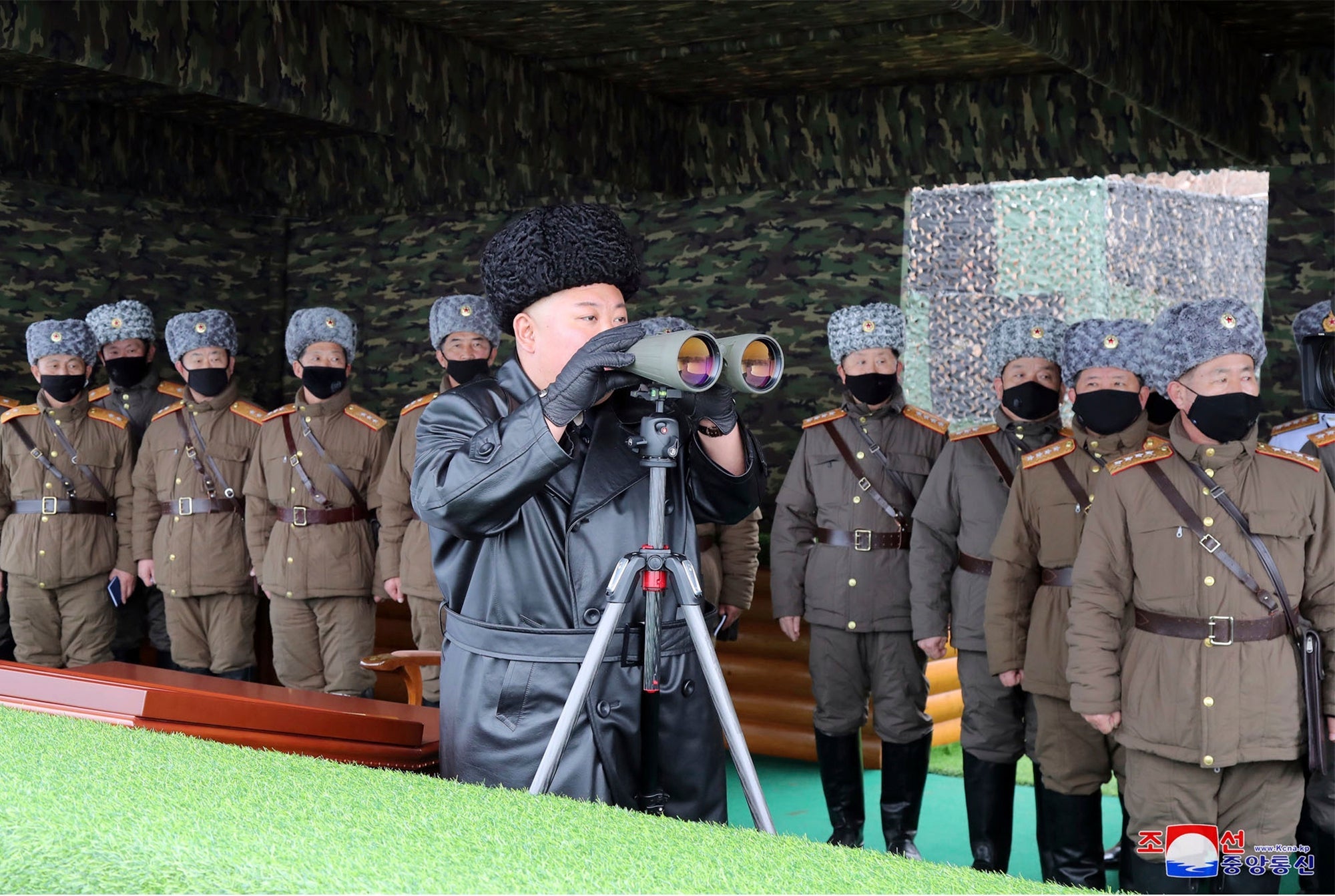North Korea launches first two projectiles since ending suspension of long-range missile tests
Japanese and South Korean militaries analysing launches, which come after a months-long pause that could have been caused by coronavirus outbreak

North Korea has fired two unidentified projectiles into the sea off its eastern coast, the first such launches since the expiration of a self-imposed ban on nuclear and long-range missile tests.
The South Korean and Japanese militaries said they were analysing the launches, from an area near Wonsan, but it was not immediately clear how far the projectiles flew or whether they were ballistic or rocket artillery.
It comes two days after Kim Jong-un oversaw an artillery drill which, according to a report in North Korean media, was aimed at improving the combat readiness of the country’s front-line troops.
Mr Kim was quoted as saying he would soon reveal a new “strategic” weapon, and that his military was no longer “unilaterally bound” to the pause on its most provocative tests that coincided with three rounds of leaders’ talks with US president Donald Trump.
Japan’s defence ministry said in a statement that it had not detected any projectiles landing in its territory or exclusive economic zone, and no sea vessels or aircraft had been damaged.
"The repeated firings of ballistic missiles by North Korea is a serious problem for the international community including Japan, and the government will continue to gather and analyse information, and monitor the situation to protect the lives and property of the people," it said.
North Korea has not tested a long-range ballistic missile since November 2017, but last year carried out around 13 rounds of weapons tests, including short-range missiles, as it attempted to force the US to make diplomatic concessions.
The US wants North Korea to make substantial, verified progress dismantling its nuclear weapons and missile programmes before sanctions relief will be granted, while Pyongyang says it won’t begin disarming until it has been given greater economic leeway. It’s an impasse that saw talks quickly break down in Hanoi last February.
A new round of tests had been expected after a New Year’s Day deadline, set by North Korea for Washington to end its “gangster-like” stance on sanctions, came and went without further talks between the two sides.
But for months there had been no launches, prompting speculation that the country might be too preoccupied with fighting or staving off a possible coronavirus outbreak.
Coronavirus: Streets around world left empty
Show all 10North Korea, which has a long land border with China, has yet to confirm any Covid-19 cases, although state media have hinted that an uncertain number of people have been quarantined after exhibiting symptoms.
The North Korean regime has shut down nearly all cross-border traffic, banned tourists, intensified screening at entry points and mobilised tens of thousands of health workers to monitor residents and isolate those with symptoms.
In the context of the virus outbreak, North Korea’s latest military displays are likely to provoke less of a reaction than ever, argues Leif-Eric Easley, a professor at Ewha University in Seoul. “In the short-term, the worsening Covid-19 crisis will preoccupy all relevant governments, leaving little bandwidth for either military escalation or productive denuclearisation diplomacy,” he said.
Subscribe to Independent Premium to bookmark this article
Want to bookmark your favourite articles and stories to read or reference later? Start your Independent Premium subscription today.

Join our commenting forum
Join thought-provoking conversations, follow other Independent readers and see their replies